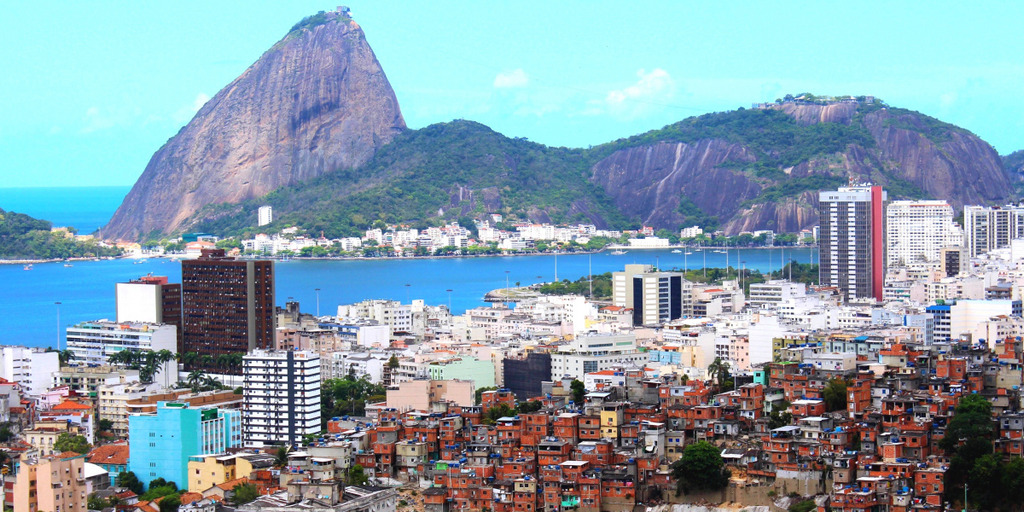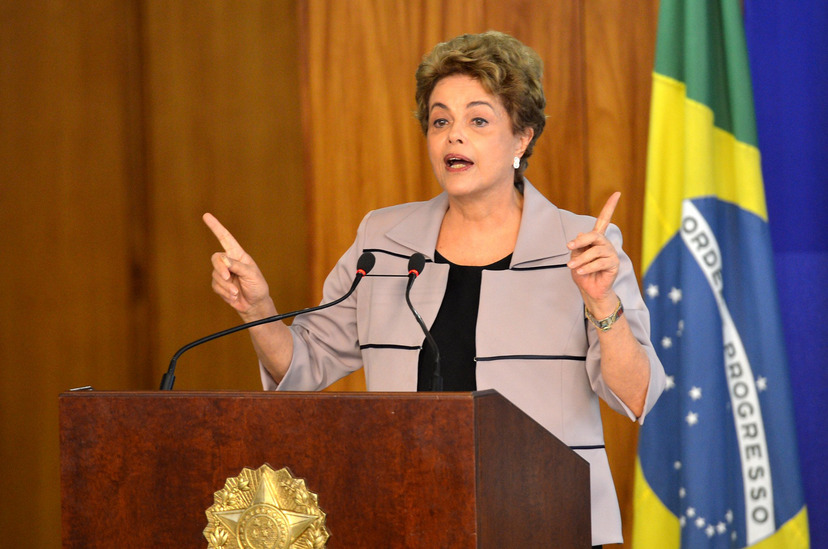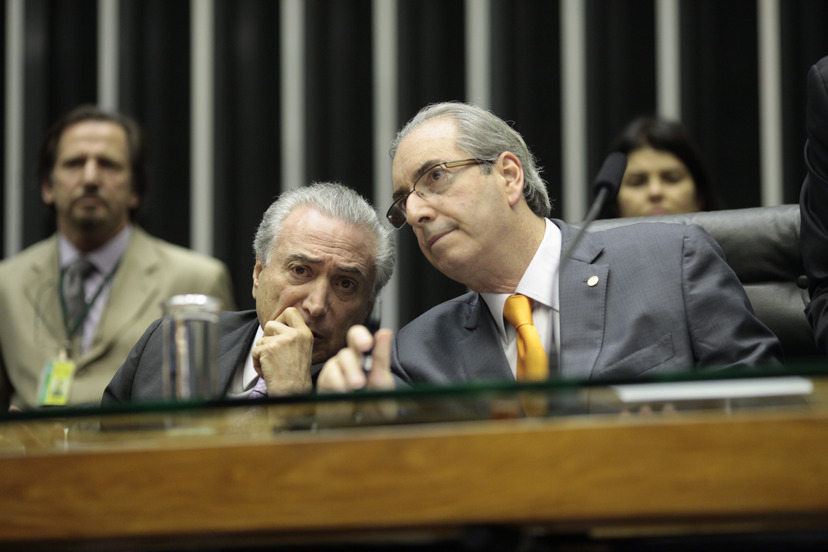Text by Hauke Hartmann. The author is Senior Expert in our project "Transformation Index BTI".

dany13 / Flickr - CC BY 2.0, https://creativecommons.org/licenses/by/2.0/
Political doping: Brazil on the eve of the Olympic Games
Hardly any other country included in the Bertelsmann Stiftung's Transformation Index (BTI) has been as diligent in combating corruption as Brazil. Indeed, the country's prosecutors need all the resolve they can muster: Brazil's political system has recently been shaken by several bribery scandals, which have contributed to the impeachment of President Dilma Rousseff. An analysis.
About the text
In Brazil, corruption pervades the political system and business community the same way doping does top-level sports – without them, certain achievements would hardly be possible. No one, for example, could ever cobble together a majority in the country's fragmented National Congress, in which more than 30 parties are represented. Construction contracts would never be signed, mining and timber rights would not be granted, political parties and election campaigns would go unfunded. Corruption has long been the grease that makes the political wheels turn in Latin America’s largest country.
But then something incredible happened, at least for Brazil: A group of committed young prosecutors uncovered one case of high-level corruption after the next. The first was the "mensalão" scandal, which came to light ten years ago and involved monthly vote-buying payments to the country's legislators, a scheme largely organized by the Workers' Party (PT) which formed the government under then President Lula da Silva. In November 2012, convictions were handed down against José Dirceu, Lula's presidential chief of staff, and almost 40 other high-level politicians and influential business leaders. It was a watershed event in the fight against corruption and the misuse of power, one that finally made credible the claims that improprieties would be investigated even if the individuals involved belonged to the country's elite.
The biggest bombshell, however, was the "petrolão" scandal, the giant kickback scheme involving Petrobras, the government-controlled oil firm, in which bribes worth billions were allegedly paid out. For years, when a contract was awarded in the oil and construction industry, 3 percent of the contract value was ostensibly siphoned off and sent abroad to be laundered, before being distributed to leading figures in all of the country's political parties. Anti-corruption officials and government prosecutors have been investigating the case for over two years as part of Operation Lava Jato (Operation Carwash) and have been increasingly successful in dismantling this corrupt multi-party network.
Good record in prosecuting office abuse
The investigators' success, however, cannot be attributed solely to their outstanding dedication or the greater resources they now have at their disposal. Their fight against graft had political backing. When she was running for office, Dilma Rousseff, Lula’s successor as president, promised tofight corruption, a dominant issue during her time leading the country. She did not hesitate to fire several of her ministers accused of corruption, including Minister of Sports Orlando Silva, soon after taking office in 2011. Both the Lula and Rousseff administrations encouraged grassroots initiatives in this area, and more than one million signatures were collected in support of the "Lei da Ficha Limpa" (Clean Slate Law), which was passed by the National Congress in the last year of Lula's presidency. The law prohibits politicians at the national and state level from running for public office for eight years if they have been convicted of corruption charges. That meant more than 1,000 politicians had to withdraw their candidacies during elections held in 2012.
According to the BTI, few countries have done as good a job prosecuting office abuse in the last 10 years as Brazil. Having received 6 out of 10 points in the BTI 2006, the country has now been given 8 points, making it one of the elite circle of 14 out of 129 development and transformation countries in which corrupt or criminal officials regularly face legal proceedings. Shortly after coming to power, the Rousseff government launched an access-to-information act, passed a new anti-money-laundering law and published the salaries of some 700,000 civil servants on an online "transparency portal."
In the BTI 2016, the Rousseff government also gets good marks for its anti-corruption policy: 7 out of 10 points for the functioning of its integrity mechanisms and the ability to implement its strategic priorities. Only 11 out of 129 countries posted a better result. All of the legal frameworks needed to effectively fight corruption were put in place, but just as crucial was the backing received from politicians. Having been given better technology and more financial resources to do their jobs, prosecutors knew they were supported at the highest levels and therefore began to take on top politicians and business leaders, people who had previously been regarded as off limits.

Antonio Cruz / Agência Brasil / Wikimedia Commons - CC BY 3.0 BR, https://creativecommons.org/licenses/by/3.0/br/deed.pt
Dilma Rousseff delivers a speech on March 31, 2016 at a reception for intellectuals and artists who opposed her impeachment as president. (Photo: Antonio Cruz / Agência Brasil / Wikimedia Commons - CC BY 3.0 BR, https://creativecommons.org/licenses/by/3.0/br/deed.pt)
"The biggest banana republic in the world"
Yet Rousseff found herself increasingly isolated as a result. Even close associates in her own party felt the anti-corruption efforts had gone too far. Formerly held together by bribes, the governing coalition led by the Workers' Party began to crumble, and Rousseff's political agenda was thwarted by the difficulties of getting legislative initiatives and reforms through an increasingly hostile National Congress. In the midst of an economic crisis brought about by falling commodity prices, she lacked compelling ideas, her efforts proved increasingly inept and she seemed absent and aloof. To avoid having to reduce expenditures during the crisis for the country's numerous social programs (which have lifted millions of Brazilians out of poverty and boosted the economy) and in order to improve her position politically, she used obscure accounting procedures to assemble her budget, making the numbers seem better than they actually were. The opposition seized on this act of political legerdemain, something Brazil's presidents have often availed themselves of in the past, to begin impeachment proceedings against her, a controversial move.
There has been muchdiscussion in Brazil and throughout Latin America about whether the action taken against the president – who has been suspended until October while the accusations are being further investigated – constitutes a coup, since the charges were based on such an obviously minor transgression. And although it is hard to imagine that Rousseff knew nothing about the widespread corruption around her, the political responsibility she bears is not sufficient justification for removing her from office. Until now no proof has been found that the suspended president participated in the illegal activities or benefitted from them. The media all describe her as being honest and upstanding, and she was most likely a driving force behind the push to bring the scandals to light. Many observers share the indignation expressed by Brazil's attorney general, who said during the Senate vote that the impeachment proceedings were turning the country into "the biggest banana republicin the world."

PMDB Nacional / Flickr - CC BY 2.0, https://creativecommons.org/licenses/by/2.0/
The Brazilian Vice President Michel Temer (left) talks to Eduardo Cunha, then President of the Chamber of Deputies, during a session of the chamber on July 8, 2015. (Photo: PMDB Nacional / Flickr - CC BY 2.0, https://creativecommons.org/licenses/by/2.0/)
A conspiracy becomes plausible
This indignation is fueled in particular by the double standards and lack of integrity exhibited by those making the accusations. Eduardo Cunha, who as president of the Chamber of Deputies spearheaded the impeachment drive, has since been relieved of his duties following charges of bribery, money laundering and obstruction of justice. Vice-President Michel Temer, who has taken over Rousseff's office as acting president, could not be elected president on his own, since he lost that right for eight years due to fraudulent election-campaign financing. The Brazilian office of Transparency International published information showing that there are corruption and abuse-of-power proceedings pending against 60 percent of the country's senators, and that things are not much better in the Chamber of Deputies.
This has led to the suspicion that the charges against Rousseff were pursued purposely to dampen the investigators' zeal. What originally seemed like a conspiracy theory now seems more and more plausible. At the end of May, the daily newspaper Folha de Sao Paulo printed excerpts from a mobile-telephone call that took place between a corrupt executive in the oil industry (who apparently has been granted immunity because he is cooperating with prosecutors) and Planning Minister Romero Jucá (a key associate of Acting President Temer) shortly before Rousseff was suspended. During the call, Jucá suggested a plan for removing the president, one that senior generals seemed to be aware of, in order to end the prosecution of numerous corrupt politicians and business leaders. Shortly thereafter, the broadcaster TV Globo released recordings of a conversation between Transparency Minister Fabiano Silveira, who is responsible for combating corruption, and President of the Senate Renan Calheiros, during which Silveira expressed regret for the anti-corruption efforts. Apparently he had unsuccessfully tried to glean information from investigators about the status of the case against Calheiros. Both ministers have since resigned, and warrants are being sought for the arrest of Calheiros, Cunha und Jucá.
The conservative "government for saving the nation" has begun cutting social programs and other government initiatives. It has also increased privatization efforts and intends to lower environmental protection standards. The country's leadership – shaken by corruption charges and thoroughly discredited – is preparing for the Olympic Games, which will be opened by Acting President Temer. Should he be booed during the ceremony, the Brazilians dissing him would be more than justified in expressing their displeasure.



